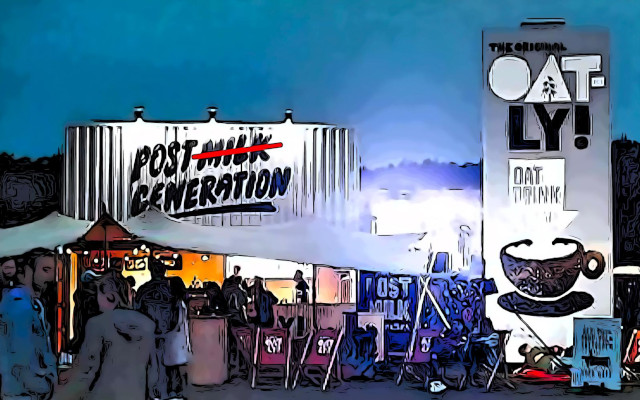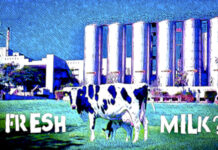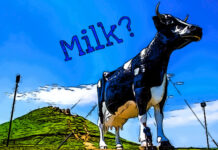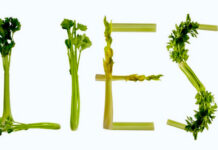The Court of Appeal in London has definitively denied the use of the ‘Post Milk Generation’ trademark on oat-based plant-based drinks produced by the Swedish group Oatly. This confirms, also in the UK, the strict ban on ‘milk sounding’ already established by the Court of Justice of the European Union.
1) Oatly, the world’s best-selling oat-based drink
Oatly is the world’s best-selling oat drink. It was developed in the early 90s by researchers at Lund University (Sweden), led by Professor Rickard Öste.
The university teacher, together with his brother Bjorn, created an industrial empire on this basis, Oatly Group AB (Nasdaq: OTLY), with operations in Europe, North America and China. (1)
Annual turnover total above US$ 800 million, up significantly (+10,9% in the third quarter of 2024 compared to the same period of the previous year), with a gross margin of 29,8%. (2)
2) ‘Post Milk Generation’, the contested trademark
‘Post Milk Generation‘ This is the trademark that Oatly attempted to register in the UK in 2019. This application was rejected by the IPO (Intellectual Property Office), in 2023, following opposition from Dairy UK.
The British Trade Union of milk producers had in fact contested the possible misleading nature of the reference to ‘milk’ in a promotional message referring to a drink of an exclusively vegetal nature.
3) The decision of the Court of Appeal in London
The Judges of London ruled on the case in November 2024, accepting Dairy UK’s argument. The Oatly ‘Post Milk Generation’ trademark, according to the Court of Appeal, infringes both British trademark law and the Common Market Organisation:
– “Milk” means exclusively the normal mammary secretion obtained from one or more milkings without either addition thereto or extraction therefrom’;
– “milk products” means products derived exclusively from milk, on the understanding that substances necessary for their manufacture may be added provided that those substances are not used for the purpose of replacing, in whole or in part, any milk constituent‘. (3)
4) Precedents and perspectives
The Court of Justice at the European Union had already provided an official interpretation of the Common Market Organisation Regulation (EU) No 1308/03, in the Tofu Town GmbH case already referred to. Excluding the possibility, in that case, of referring the term ‘cheese’ to ‘plant-based foods’ based on soya. (4)
Although Oatly can still appeal to the Supreme Court of the United Kingdom, the Court of Appeal’s ruling is binding on all other courts. And it prevents the registration of trademarks that recall dairy products on foods of a different nature, whether they are of plant origin or from cellular agriculture. (5)
Dario Dongo
Note
(1) Dario Dongo. The functional drink that reduces glycemic response. FT (Food Times). December 25, 2019
(2) Oatly Reports Third Quarter 2024 Financial Results. Globalnewswire. November 7, 2024 https://tinyurl.com/3wwukh22
(3) Regulation (EU) No 1308/2013 establishing a common organization of the markets in agricultural products. Consolidated text at November 8, 2024 https://tinyurl.com/2pu8kfzp. See Article 78.2 and Annex VII, Part III (Milk and milk products)
(4) Dario Dongo. Between Cheese sounding and Meat sounding, the uncertain line of legality. GIFT (Great Italian Food Trade).
(5) Dario Dongo. Imagindairy, the ‘milk’ from cellular agriculture. FT (Food Times). December 24, 2021
Dario Dongo, lawyer and journalist, PhD in international food law, founder of WIISE (FARE - GIFT - Food Times) and Égalité.








